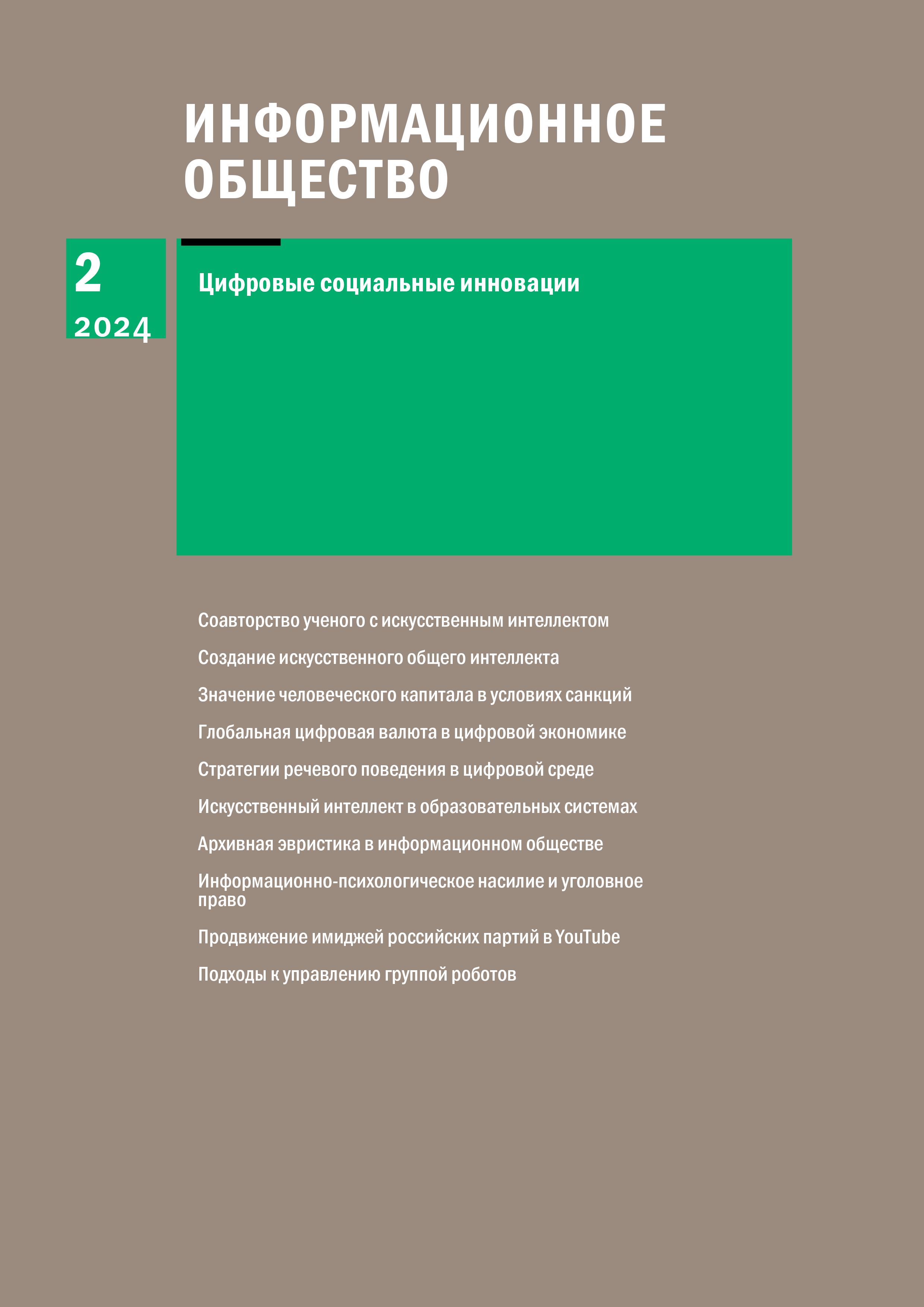Will Artificial Intelligence be awarded a Nobel Prize in 2040?
Keywords:
Artificial Intelligence, reciprocity, complexity, heterogeneity, epistemic object, object-centric socialityAbstract
The central idea of the article is shaped by the co-authors’ attempt to answer the question put by the Japanese scientist Hiraoki Kitano: will AI be able to overcome the cognitive constraints of the humans in the coming decades and, thereby, speed up the process of groundbreaking scientific discoveries?
The answer is positive, on condition the very understanding of AI is further upgraded with certain extra observations. With this aim in view, the co-authors refer to the approaches to this problem deployed by D. Searle, D. Dennett, D. Hofstadter. R. Penrose and others. They also include in their analysis the ideas of the STS (Science. Technology. Society) representatives, namely, B. Latour, K. Knorr-Cetina, H-I. Rheinberger et al. By way of concluding, the article claims that it looks as a highly realistic prospect if the Nobel Prize Committee find it possible to acknowledge a scientist-cum-AI co-authorship in the 2040s.
Published
Versions
- 26.06.2024 (3)
- 30.04.2024 (2)
- 30.04.2024 (1)
How to Cite
Issue
Section
Copyright (c) 2024 Евгений Николаевич Ивахненко, Мария Матвеевна Ковальзон

This work is licensed under a Creative Commons Attribution-NonCommercial-ShareAlike 4.0 International License.
